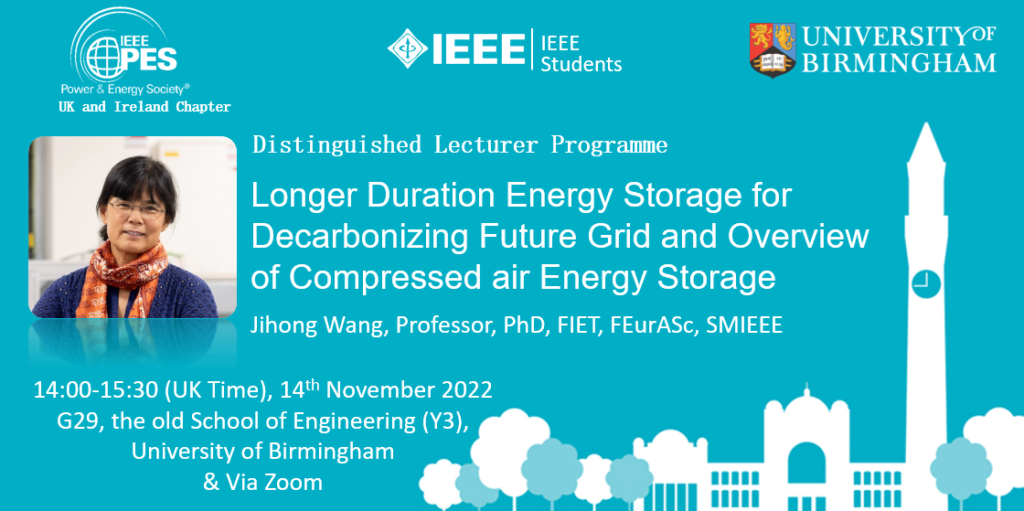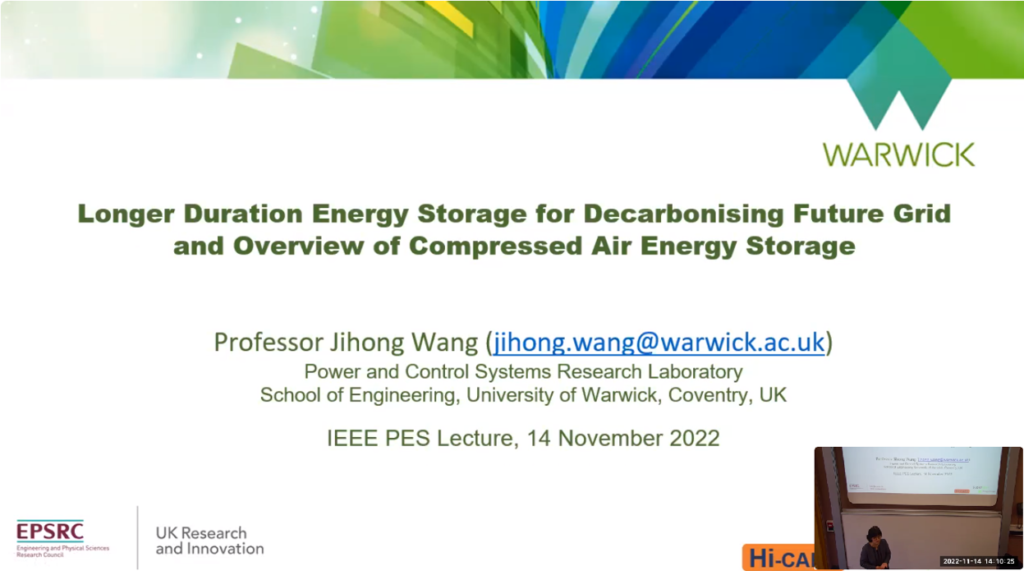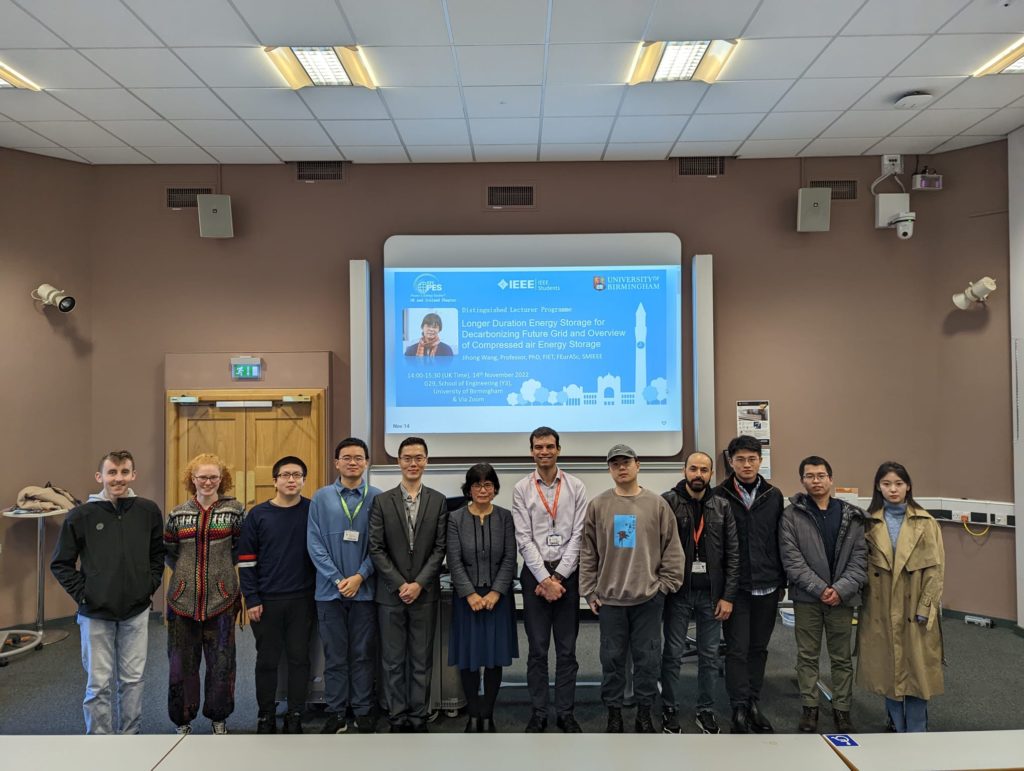Event Review: UoB IEEE Student Branch Event – Longer Duration Energy Storage for Decarbonising Future Grid and Overview of Compressed air Energy Storage

Event Report
The IEEE PES Distinguished Lecturer Program (DLP) webinar was delivered by Professor Jihong Wang, Professor in Power and Control System Engineering and Head of Power and Control Systems Research Laboratory, University of Warwick, UK, at 2 pm on 14th November 2022. Her research interests include power system modelling and control, energy storage (mainly in compressed air energy storage) and grid integration, energy efficient actuators and optimal control methods. The topic for the webinar is “Longer Duration Energy Storage for Decarbonising Future Grid and Overview of Compressed Air Energy Storage”.
This webinar was organized by the IEEE Power & Energy Society UK and Ireland Chapter and hosted by the University of Birmingham (UoB) IEEE Student Branch (which also acts as the IEEE PES student branch chapter at UoB). This event attracted 30 registrations and 16 attendees.
To start the event off the host, Nan Chen, the Chair of the UoB IEEE Student Branch, welcomed everyone and briefly introduced the student branch, before introducing the speaker, Professor Jihong Wang, to the audience.

Professor Wang first gave a brief introduction to the history of the University of Warwick. Then she started her presentation with the following aspects:
1) Longer duration energy storage for decarbonising future grid;
2) Current development of compressed air energy storage; 3) Discussion.
During the first part, Professor Wang firstly introduced the UK power generation data as an example to illustrate the large power-demand mismatch in 10-min, 1 hour, and 1 day timescales, where the oscillation of the renewable energy (wind power as the example) was then revealed. Then the balancing costs of up to £300 per month in the UK were presented. At the end, the needs and benefits, as well as the overview (capacity, cost, response timescale) of the energy storage in future decarbonising grids, were introduced and compared.
In the second part, the compressed air energy storage (CAES) using tanks and underground caverns was introduced. The technology was first explained, and then the development of 1st generation, 2nd generation, and 3rd generation of CAES, including real projects, was detailed. Finally, the main challenges and the research at the University of Warwick were depicted:
1) Joint work with the British Geology Survey proposing a Geographic Information System (GIS) to estimate the CAES storage capacity of the existing UK underground cavern storage facilities;
2) Further proposed the current gas storage estimation methods;
3) High-temperature thermal storage.
In the Discussion part, the world potential underground CAES storage capacity was introduced, followed by the energy efficiency increased from 40% in 1970s to 70% in 2022. The presentation was then summarised and future work was revealed.

Some take-away learning outcomes:
1) The efficiency of the compressed-air energy storage can reach more than 70% in real projects, compared with the theoretical cap efficiency of 81%.
2) The response of the CAES is normally on the timescale of several minutes.
3) The largest capacity of the current CAES projects is several GM, and the CAES can provide the power supply for from minutes to tens of hours, depending on the total capacity of the system.
The presentation lasted for around 50 minutes and was followed by a 30-minute Q&A session in which Professor Jihong Wang commented in detail on questions raised by the audience, giving insightful examples and recommended resources.
For more details about the biography of Professor Jihong Wang and the abstract of this presentation, please visit the UoB IEEE Student Branch website (https://edu.ieee.org/uk-uob/).
Presentation recording via Zoom is available:
Passcode: X@K2#rZN
